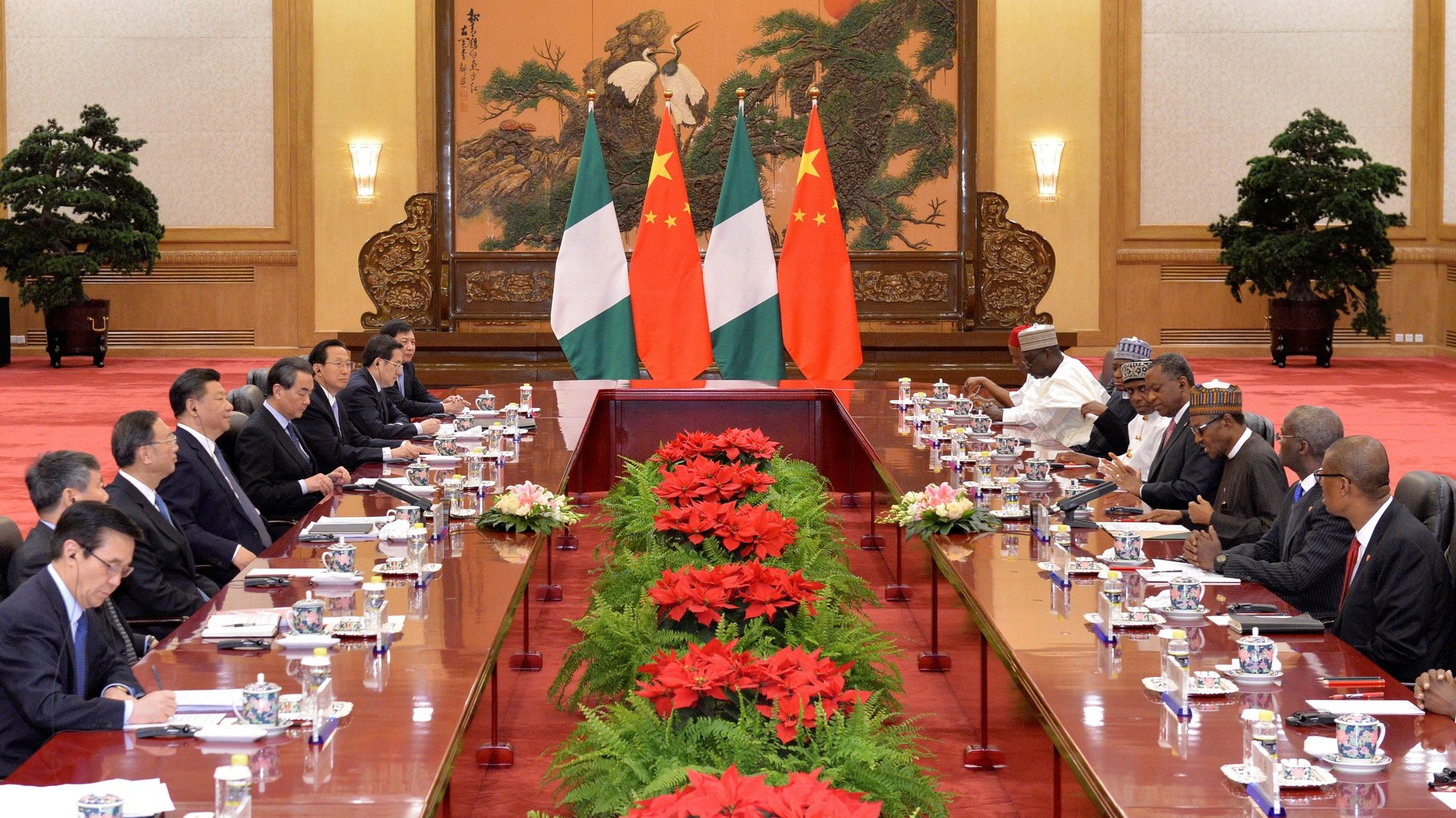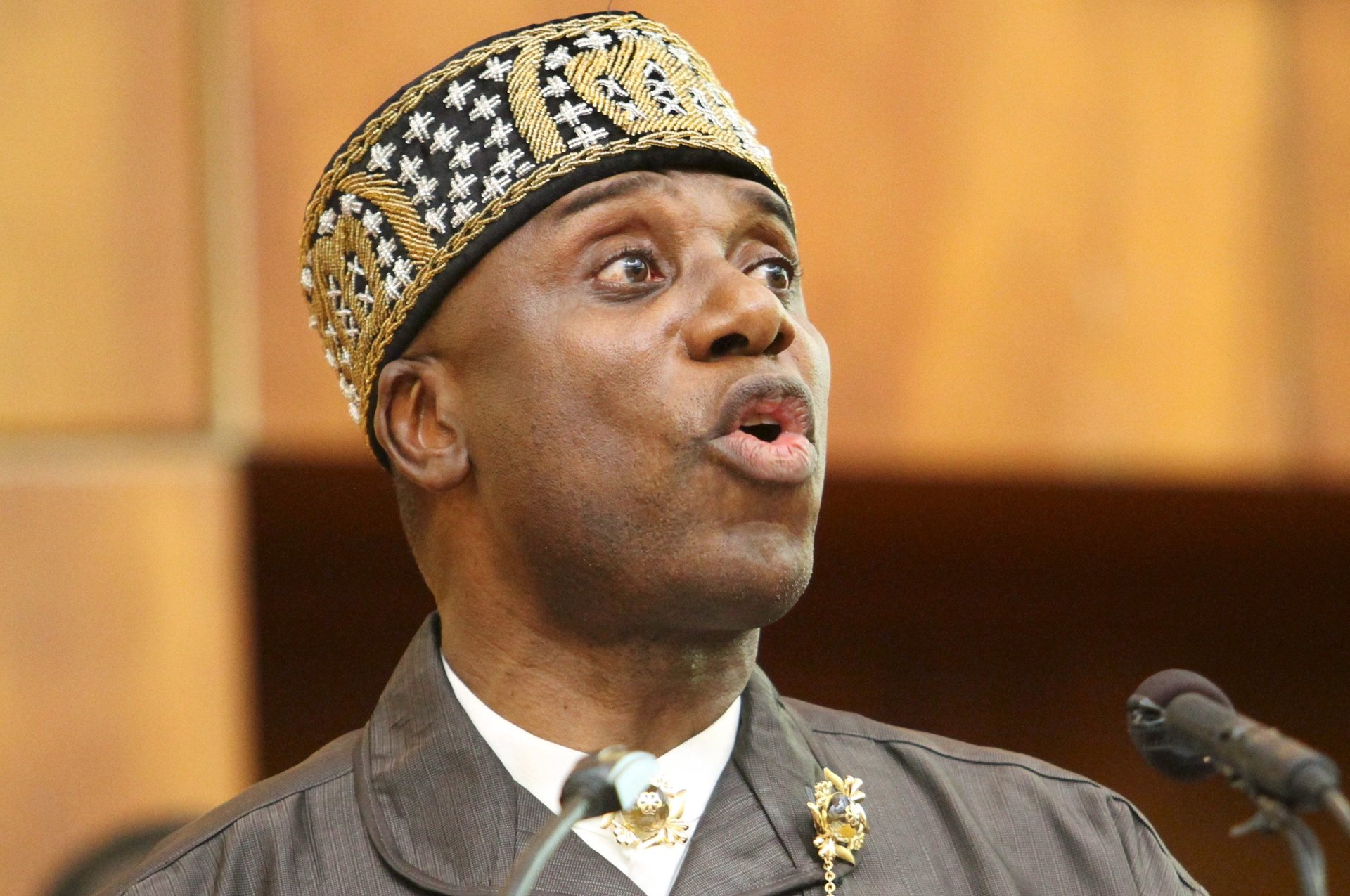Misinformation and politics are fueling fears of a Chinese debt trap in Nigeria
The hottest debate in Africa’s largest economy over the past week has been the over possibility of “losing” its sovereignty to China over bad debts.


The hottest debate in Africa’s largest economy over the past week has been the over possibility of “losing” its sovereignty to China over bad debts.
It has come amid a wave of claims by federal lawmakers who are pushing for a probe into China’s lending practices to Nigeria, in the wake of a sovereign guarantee clause in loan agreements that has been erroneously interpreted. The dominant and controversial narrative is that the clause could see Nigeria sign away its sovereignty in the event of a payment default. And the outcry has proven significant enough for China’s embassy in Nigeria’s capital to deny plans to seize Nigerian assets.
Nigeria’s transport minister Rotimi Amaechi has attempted to clarify the purpose of the clause and described it as a waiver of immunity which would allow China pursue paths, including arbitration, to settle possible disputes over payments. ”They

(the Chinese) are saying, if you are not able to pay, don’t stop us from taking back those items that will help us recover our funds. And it’s a standard clause, whether it’s with America you signed it or with Britain or any country, because they want to know they can recover their money,” he explained in a press release last week.
But opposition groups pushed back against Amaechi’s stance, including his view that a probe of Chinese loans could stall ongoing projects, as an indicator of opacity in the government’s dealings with the Asian economic powerhouse.
Yet, as Eric Olander, co-founder of The ChinaAfrica Project highlights, much of local media coverage has been driven by reports which pin up Zambia as a cautionary tale, alleging the southern African country has lost some of national assets to China over debt default. And as Quartz Africa has reported, that never happened.
The calls for a probe of Chinese loans come as Nigeria’s federal lawmakers are turning a searchlight on top-level government agencies, including the financial crimes watchdog and the development commission for its oil-rich Niger-Delta region. The timing is also noteworthy given the recent spate of anti-Chinese sentiments following high-profile racism incidents against Africans in China which saw lawmakers call for more stringent immigration measures on Chinese nationals.
Debt diplomacy
The controversy comes on the back of an established narrative about China’s “debt diplomacy” in Africa which has been particularly trumpeted by the United States, particularly under the Trump administration. In the face of its perceived dwindling influence across the continent in stark contrast to China’s sharp rise, the US has argued that China’s posturing as a willing backer for expensive infrastructural projects is an elaborate play to entrap African countries in debt. It’s a sentiment that’s been supported by the reality that African countries, including Kenya and Ethiopia, are struggling with Chinese debt.

With Nigeria increasingly desperate for external funding in the face of a Covid-19 induced cash crunch, there’s lingering fear that its debt burden might escalate given the grim economic outlook. As oil earnings—its main revenue source—have long been undercut by falling production levels, oil price drips and most recently, a near total shutdown of the global oil economy. Africa’s largest economy has been unable to fully fund national budgets over the past few years.
As such, Nigeria has increasingly relied on loans for big-ticket infrastructure projects and has particularly leaned on Chinese financial and technical support to build out its transport network. So far, China has offered loans to back eleven ongoing large-scale infrastructural projects, leaving Nigeria’s debt to China at $3.1 billion—11.2% of its external debt as of March 31.
Sign up to the Quartz Africa Weekly Brief here for news and analysis on African business, tech and innovation in your inbox